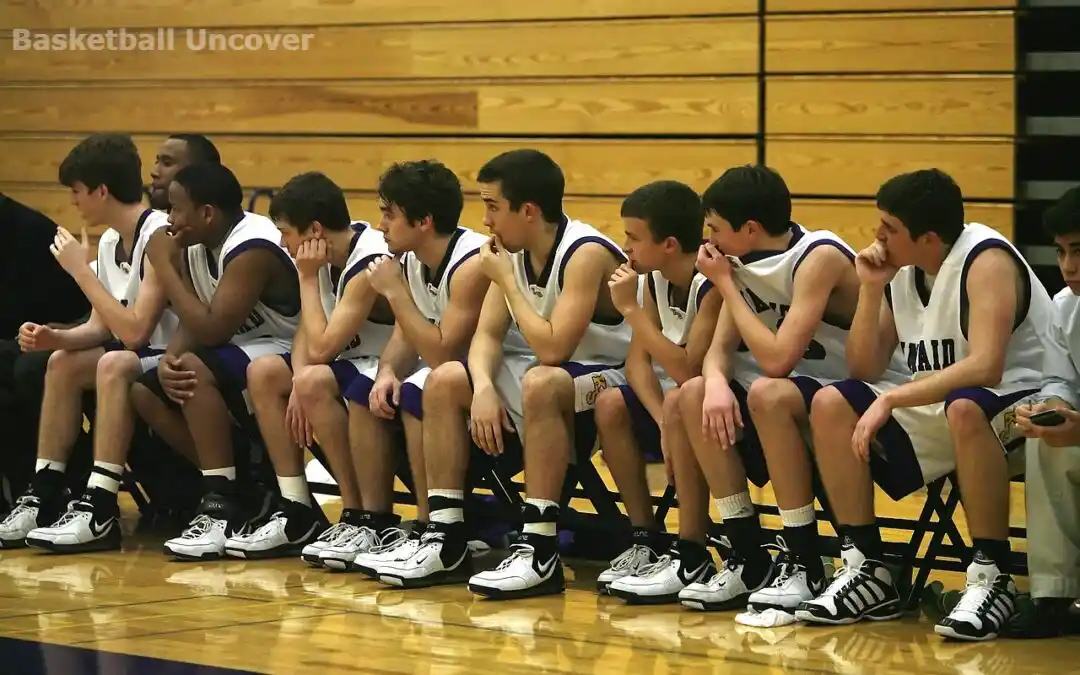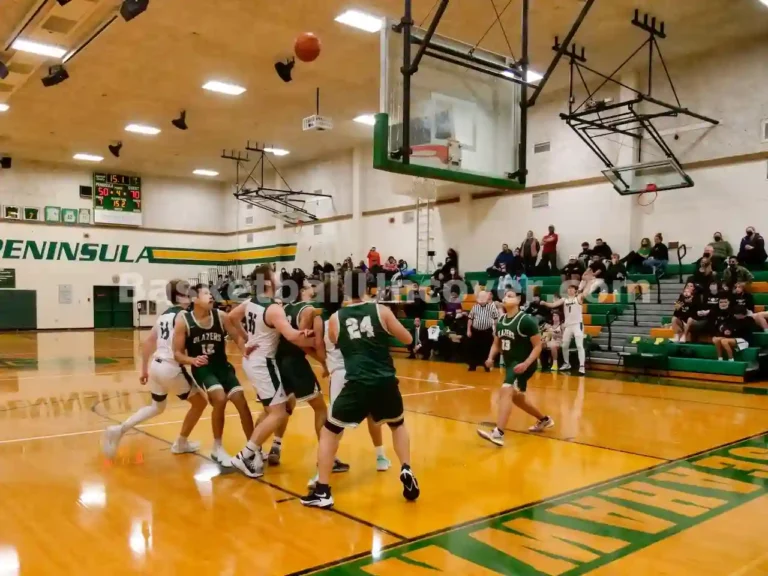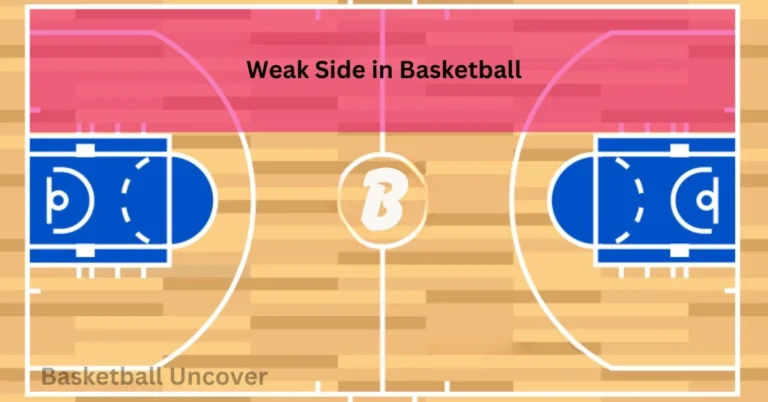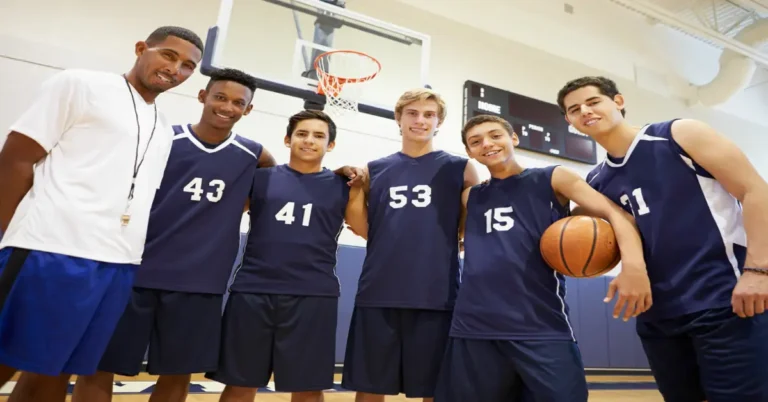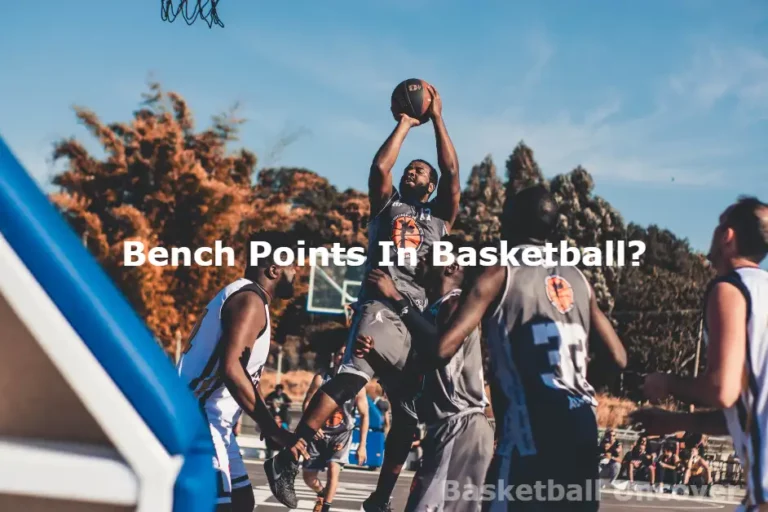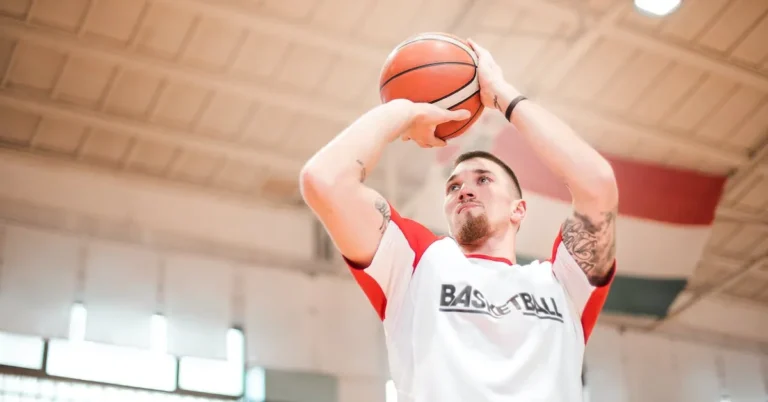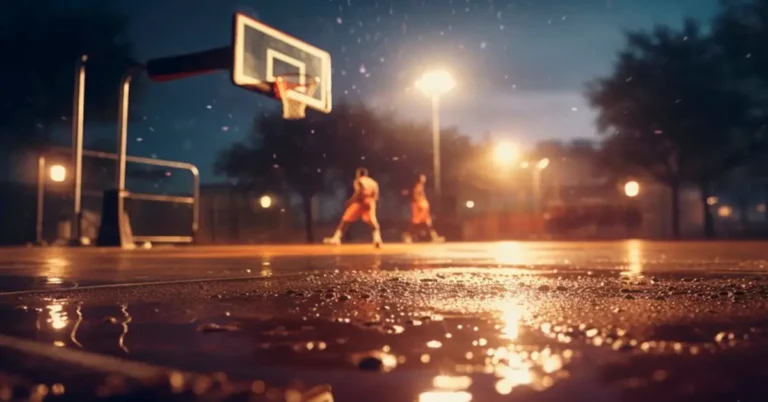What Is A Bench Player In Basketball?
Bench player, who provide essential support and significantly contribute to a team’s performance, are crucial in the fast-paced, competitive basketball world.
Basketball team members who don’t play right away but stay near the sidelines with the coaches and maybe at least one doctor are called bench player.
Some players on the bench can come in and play at any time if the coach calls for them. They are also called backups, spare players, role players, or just the bench. Teams usually have seven to ten of them, or twelve to fifteen players.
Role of Bench Players
Basketball bench players are essential for the team to make bench points.
Rest and Fatigue Management:
Basketball is a tough physical sport that calls for a lot of endurance and energy. Throughout a game, starters can get tired, and reserve players provide them a chance to relax and recuperate. This keeps the squad playing with consistent effort and energy throughout the match.
Injury Replacement:
Sports injuries are unavoidable, and a team with a deep bench may easily substitute injured players. In order to keep the team competitive even in the face of unanticipated setbacks, bench players must be prepared to enter the game at any time.
Strategic Substitutions:
Coaches use bench players strategically to exploit matchups and adapt to the opposing team’s playing style. Different players bring unique skills and strengths to the game, and coaches can make substitutions to capitalize on specific situations or exploit weaknesses in the opponent’s lineup.
Specialized Skills:
The unique skills of bench players frequently enhance the qualities of the starting lineup. Because of this variety, coaches are able to adjust their starting lineup according to the needs of the game, bringing in defensive specialists, three-point shooters, or players with specialized positional knowledge.
Maintaining Team Chemistry:
For a basketball team to do well, its players need to get along well with each other. Bench players are very important for keeping the team spirit and friendship high. Their helpfulness, positive attitude, and efforts in practice and games help the team work together.
Bad Trouble:
Starters can get fouls during the game, and getting too many fouls can get them kicked out of the game. Bench player are very important because they can fill in for a key player when they get a foul, so the team doesn’t lose a major provider for a long time.
Pressure Situations:
Bench players need to be ready to do well when the heat is on. When things are tight or the game is close, coaches may look to their bench points from trusted players. Players who are good at dealing with stress give the team more strength and versatility.
Development and Future Potential:
A lot of the time, younger or less experienced players who are still learning the game are on the bench. Giving these players playing time helps them learn important skills, speeds up their growth, and gets them ready for bigger roles in the future.
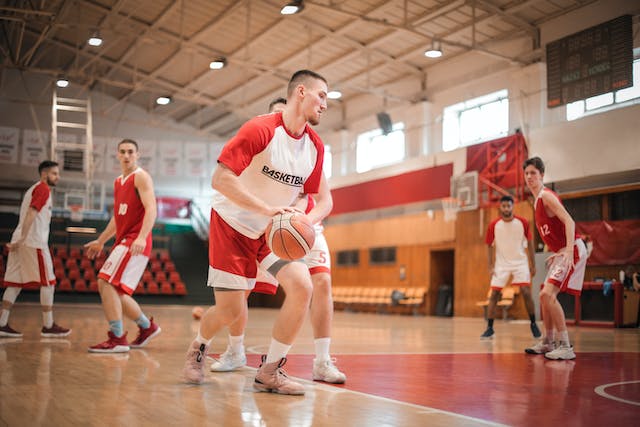
Types of Basketball Bench Players
Scoring Specialists:
These are players who are great at scoring quickly, usually from different spots on the court.
Defensive Stoppers:
Players who are known for how good they are at defense can stop the other team’s progress in its tracks.
Sixth Man/Instant Offense:
Usually a top-level scorer who comes off the bench to give the offense a quick boost and score when the stars need a break.
Backup Point Guards:
skilled at handling and passing the ball, they can run the game well and make plays when the starting point guard isn’t there.
Three-Point Specialists:
Players who are good at shooting from beyond the hoop are brought in to open up the floor and help the offense.
Rebounders:
Players who are great at getting rebounds, especially on the offensive glass, or players who play good defense in the middle of the court.
Hustle Players:
Players who are known for their hustle, tenacity, and great energy and who often make big plays by working hard and being intense.
Versatile Wing Players:
On the side, there should be players who can do a variety of jobs and offer scoring, defense, and playmaking skills.
Defensive Specialists:
The players’ main goal was to stop their opponents by using skills like on-ball defense, shot-blocking, and stopping passing lanes.
Young Developmental Players:
In the early stages of their careers, players with less experience are getting more playing time to improve their skills.
Rim Protectors:
experts at blocking shots who are great at protecting the basket, changing opponents’ shots, and playing good defense in the paint.
Veteran Leaders:
Players with a lot of experience who lead, teach, and calm the team down often act as teachers for younger players.
Role Players/Utility Players:
Players who can switch jobs as needed and help with different parts of the game depending on what the team needs.
Sharpshooting Big Men:
centers or power forwards who can shoot from outside the three-point line to open up the floor and add a new level to the team’s offense.
Defensive Midfielders:
Players whose main job is to defend the perimeter. They usually guard the other team’s best perimeter player and make it hard for them to score.
These types of bench players help a basketball team do well by adding strength, specialization, and scoring bench points.
Are Starting Players Better Than Bench Players in Basketball?
Every player on a basketball team contributes to the team’s general success and performance. A few players may be simply better at hoops than others, though.
The starting five players, who play most of the game, are generally better at the game than the players on the bench. The bench guys are still good, though.
Actually, bench players are still great basketball players as long as they can make the team and give the team extra help, resources, and great basketball skills.
FAQs
Bench players are substitutes who don’t start the game but come on in relief of starters.
Other names of bench players in basketbaa is Substitutes, Reserves, Role players, The bench.
Typically 7 to 10, bringing the total roster size to 12-15 players.
They provide fresh legs, specific skills, and strategic adjustments.
It recognizes the best performing bench player in the NBA.
Conclusion
Bench players are crucial to a basketball team’s success, providing vital energy, specific skills, and strategic depth when needed. They can change the course of a game by acting as a defensive expert, a three-point shooter, or a ball-handling master.
For the best teams, having a strong and flexible bench is essential. Teams invest in players who can occupy different positions and contribute to different parts of the game, ensuring they have the flexibility and depth needed to compete at the highest level.

